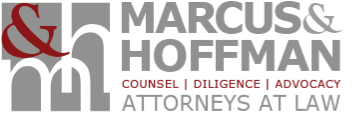The transition process typically begins when the Declarant-run Board of Directors is replaced by Directors elected by the unit owners. However, transition is not simply the transfer of leadership. This critical process continues as the newly elected Board starts to identify and preserve any potential claims that the Association may have in connection with the physical conditions of the common element property, the financial condition of the Association, and the management of the Community.
One of the first actions a newly elected Board of Directors typically undertakes is to hire independent and experienced legal counsel to coordinate the transition process. Legal counsel can assist the Association with identifying and securing all documentation relevant to the creation, construction and operation of the Community from its inception to the turnover of control to the Association. Additionally, it is the newly elected Board of Directors’ responsibility to determine whether the common element property has been turned over to the Association in the condition promised by the developer. In this regard the Board will often retain an independent professional engineer to conduct a thorough inspection and evaluation of the property for defects and/or deficiencies in the construction of the Community. In our experience, legal counsel’s coordination with the Association’s engineer is essential; counsel can ensure that the engineer understands the warranty provisions applicable to the property, and they can evaluate the findings of the engineer to determine whether the Association has any claims for the defects and/or deficiencies identified by the engineer. Legal counsel also assists the Board in evaluating the Association’s financial condition which may include the hiring of an independent accountant to determine whether all required capital contributions and all regular assessments owed by the developer have been paid as well as whether all expenses paid out of the Association’s account were expenses of the Association as opposed to the Developer’s expenses.
The results of the inspections and analyses conducted by the Association as part of the transition process must be evaluated by the Association to determine whether there are any potential claims which the Association should be pursuing on behalf of the Community. While it is always the Association’s goal to resolve matters amicably with the Declarant, to the extent the Declarant fails to correct the construction defects and deficiencies identified by the Association, otherwise breaches its obligations to the Association, or is uncooperative with respect to the transition process, litigation may be the Association’s only recourse. Multiple questions arise as the Association navigates through the transition process. What are the Association’s damages? Who is responsible for the damages? What is the likelihood that the Association can recover the damages from the responsible parties? Does the Association have the right to pursue a claim for such damages? What is the statute of limitations for pursing such claims? If the Declaration does not correct the defects, who will bear the costs of repair?
All of the foregoing issues should be carefully evaluated by the Board and its legal counsel. The Board must weigh the costs of pursuing such claims against the cost to the Association and its unit owners should they choose to correct the defects themselves. While the transition process may be time consuming and often requires the Association to make certain expenditures, our experience has clearly demonstrated that the Association’s failure to properly evaluate the overall condition of the Association can be much more costly in the long term. In the latter event, not only will the unit owners ultimately have to bear the costs of correcting the defects that should have been the responsibility of the developer, but the newly elected Board may find themselves exposed to liability where the prompt identification and assertion of such claims would have protected the interests of the Association and its unit owners.
If you have any questions about the transition process for your Association, contact Adam Marcus or Keely Carr at Marcus & Hoffman.
One of the first actions a newly elected Board of Directors typically undertakes is to hire independent and experienced legal counsel to coordinate the transition process. Legal counsel can assist the Association with identifying and securing all documentation relevant to the creation, construction and operation of the Community from its inception to the turnover of control to the Association. Additionally, it is the newly elected Board of Directors’ responsibility to determine whether the common element property has been turned over to the Association in the condition promised by the developer. In this regard the Board will often retain an independent professional engineer to conduct a thorough inspection and evaluation of the property for defects and/or deficiencies in the construction of the Community. In our experience, legal counsel’s coordination with the Association’s engineer is essential; counsel can ensure that the engineer understands the warranty provisions applicable to the property, and they can evaluate the findings of the engineer to determine whether the Association has any claims for the defects and/or deficiencies identified by the engineer. Legal counsel also assists the Board in evaluating the Association’s financial condition which may include the hiring of an independent accountant to determine whether all required capital contributions and all regular assessments owed by the developer have been paid as well as whether all expenses paid out of the Association’s account were expenses of the Association as opposed to the Developer’s expenses.
The results of the inspections and analyses conducted by the Association as part of the transition process must be evaluated by the Association to determine whether there are any potential claims which the Association should be pursuing on behalf of the Community. While it is always the Association’s goal to resolve matters amicably with the Declarant, to the extent the Declarant fails to correct the construction defects and deficiencies identified by the Association, otherwise breaches its obligations to the Association, or is uncooperative with respect to the transition process, litigation may be the Association’s only recourse. Multiple questions arise as the Association navigates through the transition process. What are the Association’s damages? Who is responsible for the damages? What is the likelihood that the Association can recover the damages from the responsible parties? Does the Association have the right to pursue a claim for such damages? What is the statute of limitations for pursing such claims? If the Declaration does not correct the defects, who will bear the costs of repair?
All of the foregoing issues should be carefully evaluated by the Board and its legal counsel. The Board must weigh the costs of pursuing such claims against the cost to the Association and its unit owners should they choose to correct the defects themselves. While the transition process may be time consuming and often requires the Association to make certain expenditures, our experience has clearly demonstrated that the Association’s failure to properly evaluate the overall condition of the Association can be much more costly in the long term. In the latter event, not only will the unit owners ultimately have to bear the costs of correcting the defects that should have been the responsibility of the developer, but the newly elected Board may find themselves exposed to liability where the prompt identification and assertion of such claims would have protected the interests of the Association and its unit owners.
If you have any questions about the transition process for your Association, contact Adam Marcus or Keely Carr at Marcus & Hoffman.

